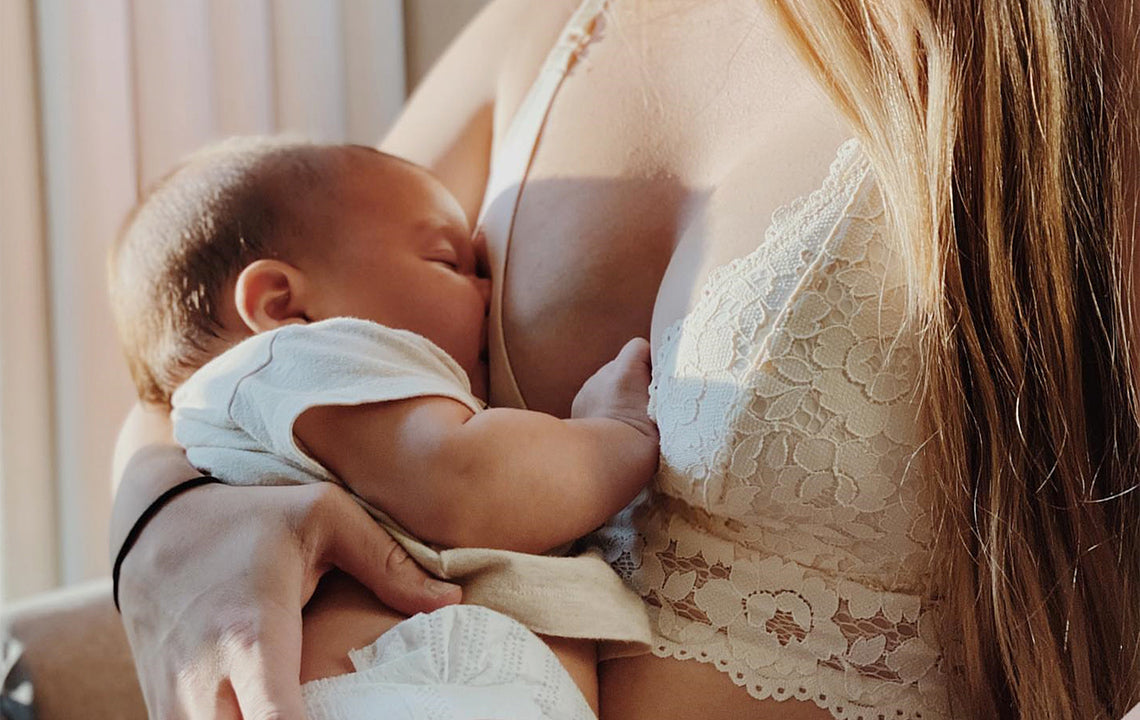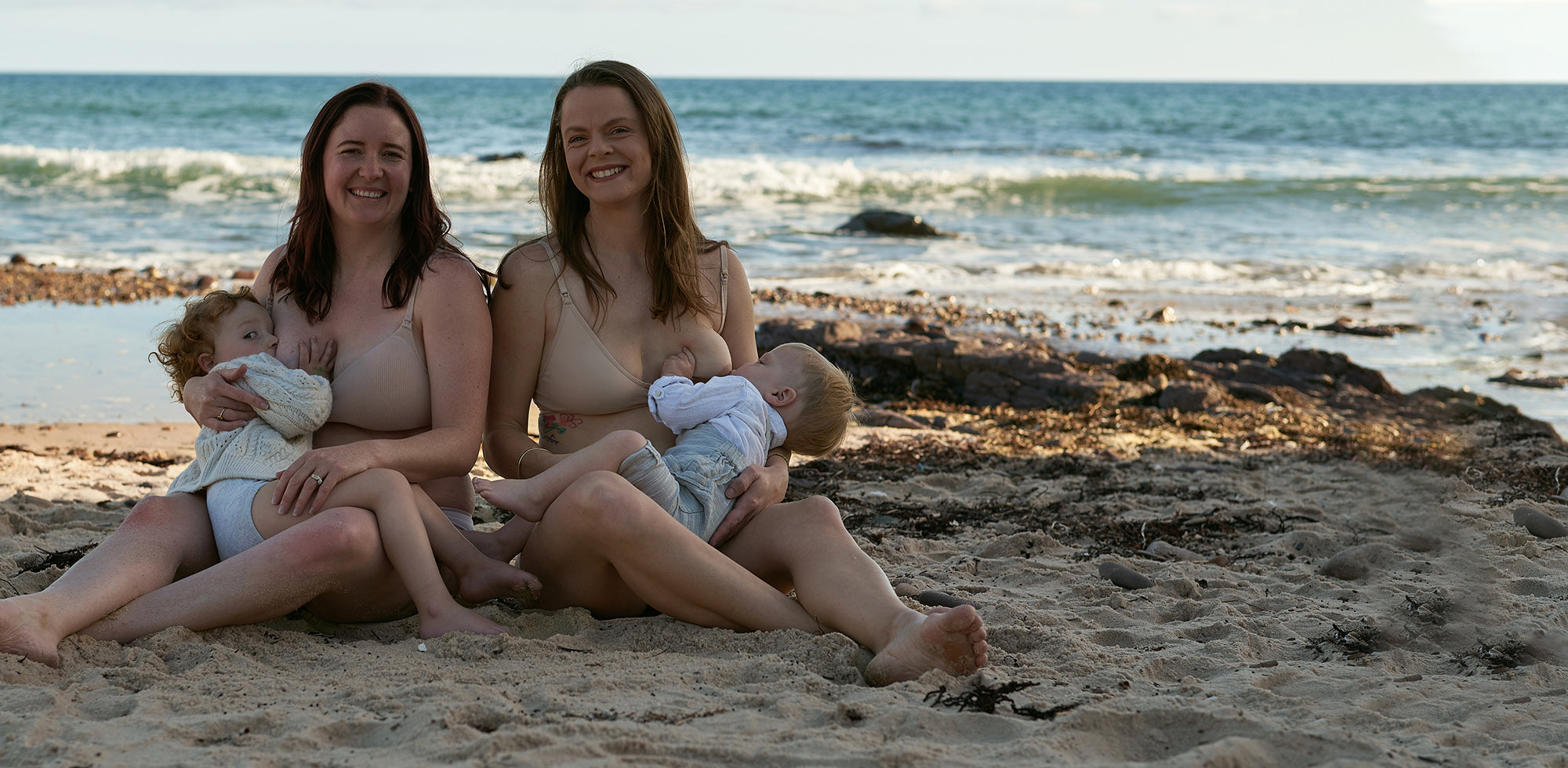Complete guide to the best foods to eat
and what to avoid while breastfeeding

If you are like most breastfeeding moms, you’re probably worried about how the food you eat will influence the quality of your breast milk. You may be wondering whether you need to avoid certain foods in order to prevent stomach issues or allergies in your little one. Or perhaps you’d like to know what foods you need to eat more of in order to produce the proper volume of milk or the best quality milk for your child.
Well, if this is the position you are in, this guide has all the answers! But first, some good news: regardless of what food you eat, your breast milk will most likely be adequate for your child. Your body understands exactly what nutrition your baby requires at each stage of growth.
To help you plan your diet, consider the following suggestions.
What should you eat?
Here is a list of some of the most important food items to include in your diet:
- Protein foods such as meat, chicken, fish, eggs, dairy, beans, nuts, and seeds should be consumed 2-3 times a day.
- Eat three servings of veggies each day, particularly dark green and yellow vegetables.
- Eat at least two servings of fruit each day.
- Include whole grains in your regular diet, such as whole-wheat bread, pasta, cereal, and oatmeal.
- Drink lots of water. While nursing, many women experience thirst. However, forcing yourself to drink more fluids will not boost your supply.
It is important to point out that breastfeeding mothers are not subject to pregnancy-related dietary restrictions.
Additionally, vegetarian diets are compatible with breastfeeding. If you do not eat meat, be sure to eat other iron and zinc-rich foods such as dry beans, dried fruit, nuts, seeds, and dairy. If you are on a vegan diet where you avoid all animal products, you will need to take a B12 supplement to ensure your baby does not develop a B12 deficiency.
How much food should you eat?
Breastfeeding necessitates an increase in the number of calories you consume. If you still have baby weight from your pregnancy, these extra calories will be utilized for milk production. If you've lost all your baby weight, you may need to eat an extra 500-600 calories each day. After your baby starts eating solid foods at 6 months, your body will produce less milk and you can cut back on your calorie intake.
What shouldn’t you eat?
The good news is that apart from reducing how much oily fish you eat, there are no specific foods to avoid when nursing your child.
Certain foods have historically gotten a bad rap when it comes to breastfeeding diets. For example, caffeine and alcohol are actually OK in moderation. You just need to know how much you can take and when you can take it. We explain this more in the next section.
There is also no need to avoid foods like peanuts or peanut-based foods when nursing unless you are allergic to peanuts. In fact, a new study reveals that if you eat peanuts while nursing and introduce them to your baby's diet during the first year, they will be less likely to become allergic to them.
Caffeine and alcohol
Caffeine gets passed to your breast milk but most newborns are unaffected by it. If you notice that your little one is having trouble sleeping or is cranky, they may be sensitive to it. Therefore, consider restricting or avoiding coffee for a few months, Newborns are more sensitive to caffeine in breast milk than older babies.
Caffeine limits are officially recommended differently in each country, however, most advocate no more than 200 to 300 mg (0.007 to 0.01 ounce) of caffeine per day (300 mg is equivalent to two mugs of filtered coffee or four mugs of tea). Consult your healthcare provider about what is best for you. Caffeine may also be found in colas and energy drinks, and a tiny bar of plain chocolate can contain up to 50 mg (0.002 oz).
If you want to consume alcohol, wait 2-3 hours between servings (12 oz. beer, 6 oz. wine, 1.5 oz. liquor) before nursing or pumping. Studies show that alcohol does not stay in breast milk for long. It is removed as your blood alcohol level goes down. When you are sober, the alcohol in your milk is gone. If you're feeling tipsy and your breasts are full, you may need to "pump and dump."
That said, many nursing mothers prefer to abstain from alcohol completely while breastfeeding. While studies have not found any negative impact of occasional mild drinking during nursing on newborns, it may be smart to simply avoid alcohol until your baby is at least 3 months old. Even then, only consume it as a treat, such as a modest (125 ml/4.2 fl oz) glass of wine.
Again, if you do consume alcohol, wait at least a couple of hours before your next breastfeeding session to allow the alcohol to pass through your system. Also, note that alcohol can temporarily lower your milk yield, so if you take a drink, your baby may appear hungry and want to nurse more.
If you want to have a drink and not risk passing it to your child, consider expressing and preserving it ahead of time and offering your little one the stored milk instead. A breast pump and a If you want to have a drink and not risk passing it to your child, consider expressing and preserving it ahead of time and offering your little one the stored milk instead. A breast pump and a quality pumping bra will help you do exactly this.
bra will help you do exactly this.
List of foods that you may want to avoid while breastfeeding
Apart from caffeine and alcohol, here is a list of other foods that you may have to eat in moderation as you breastfeed your little one. Keep in mind that none of these foods are outright bad for you or your little one. You just need to understand how best to consume them so they do not have a negative effect on your little one.
1.Fish
Fish is a rich source of protein. Some, such as salmon and tuna, also have omega-3 fatty acids, which your body needs. You can have cooked seafood twice per week while breastfeeding. Go for fish types that are lower in mercury such as salmon and trout. Avoid high-mercury seafood such as shark, king mackerel, and tilefish.
2.Spicy foods
Do you enjoy spicy foods? Most babies can handle a bit of spice in their breast milk. However, if your child gets gassy or colicky or gets diarrhea every time you get a little adventurous with your spices, reduce the heat for a few weeks to see if it helps.
3.Sage, Peppermint, and Parsley
Sage, peppermint, and parsley have lots of flavor. However, certain herbs affect how much milk your body produces. Eating a lot of parsley, for example, could lower lactation. Too much sage and peppermint can also reduce your milk production. Even peppermint-flavored toothpaste and chocolates might be problematic for some breastfeeding mothers.
4.Milk
Milk is almost never an issue. However, keep an eye on your child. Talk to your physician if they develop skin issues, have difficulty breathing after nursing, or exhibit any other symptoms of lactose intolerance.
5.Tea
As delightful as a cup of tea may seem, it does have some drawbacks. It contains caffeine, which in large amounts might interfere with your sleep and that of your baby. It may also make it more difficult for your body to absorb iron, which it needs for energy. Also, don’t drink tea with iron-rich foods like lean meat, leafy greens, and fortified cereals.
6.Eggs and nuts
What if you aren't allergic and wish to prevent your little one from developing those allergies? Well, there is no evidence that you can do so by avoiding certain meals. Eliminating some items from your diet may only reduce the likelihood of your child developing eczema. Consult your doctor or a pediatrician for guidance.
7.Sugary drinks
Breastfeeding might cause you to be thirstier than normal. If this is the case, drink a glass of water after each breastfeeding session. Try to limit your intake of conventional sodas and fruit drinks, which provide calories but little nourishment.
8.Gassy foods
Beans, broccoli, cabbage, and Brussels sprouts are common gassy foods. You may notice your little one burping more, bloating, and passing gas after you eat these foods. These are all common reactions. However, if your baby is too gassy or has colic, you should avoid these foods for a few weeks to see whether they ease the symptoms.
Will your baby grow into a less picky eater if you eat more adventurously?
It is true that the flavors of the meals you eat are carried into your breast milk. This means when you eat a diverse breastfeeding diet, you’ll be introducing your baby to all sorts of new flavors. They might end up liking these familiar flavors as they grow.
So what does this mean?
Well, if you enjoy spicy foods, there's no need to avoid them while nursing. While there is no concrete evidence that eating adventurously will turn your little one into a less picky eater, there are lots of anecdotal stories about moms who ate various foods that turned to become their little one’s favorites as they grew up.
Final Thoughts
As a nursing mother, there isn't a single time when your body isn't actively producing milk for your child. Many nursing mothers describe feeling continually hungry, which is due to the number of calories necessary to produce each ounce of milk. It's critical to eat nutrient-dense meals that help your body replenish these calories.
That said, there are certain foods that are better for you than others. With the guide above, we hope adding these beneficial foods to your diet will be easy for you. Good luck!
Cluster feeding: Everything you need to know
May 16, 2022 SamanthaHoare
Complete guide to the best foods to eat and what to avoid while breastfeeding
May 16, 2022 SamanthaHoare
When should I stop breastfeeding
May 13, 2022 AngeliaSmith
5 Fun and Unique Ways to Tell The World You’re Pregnant!
Mar 31, 2022 SamanthaHoare
10 Early Signs of Pregnancy
Mar 31, 2022 SamanthaHoare
5 Things to Consider for Your Gender Reveal Party
Mar 29, 2022 SamanthaHoare
SUBCRIBE FOR NEWSLETTER
Shop today with 5% OFF your first order of all products storewide











